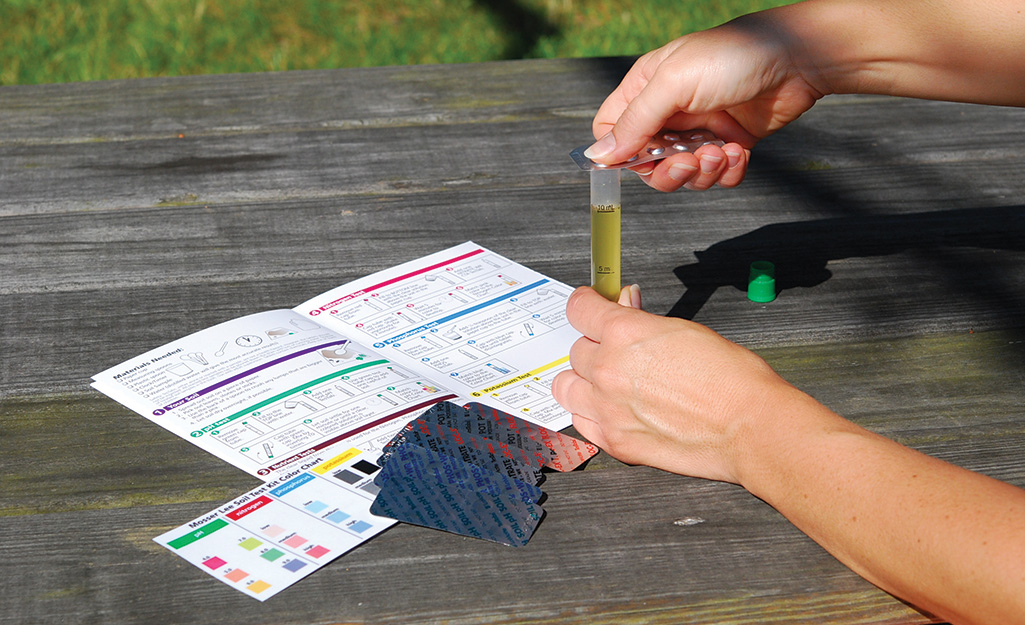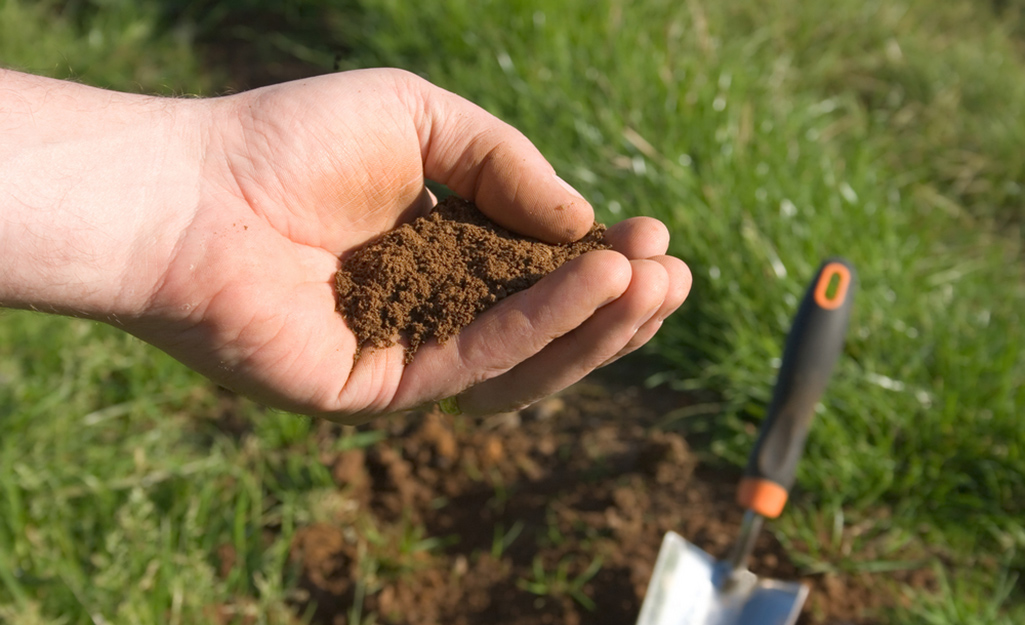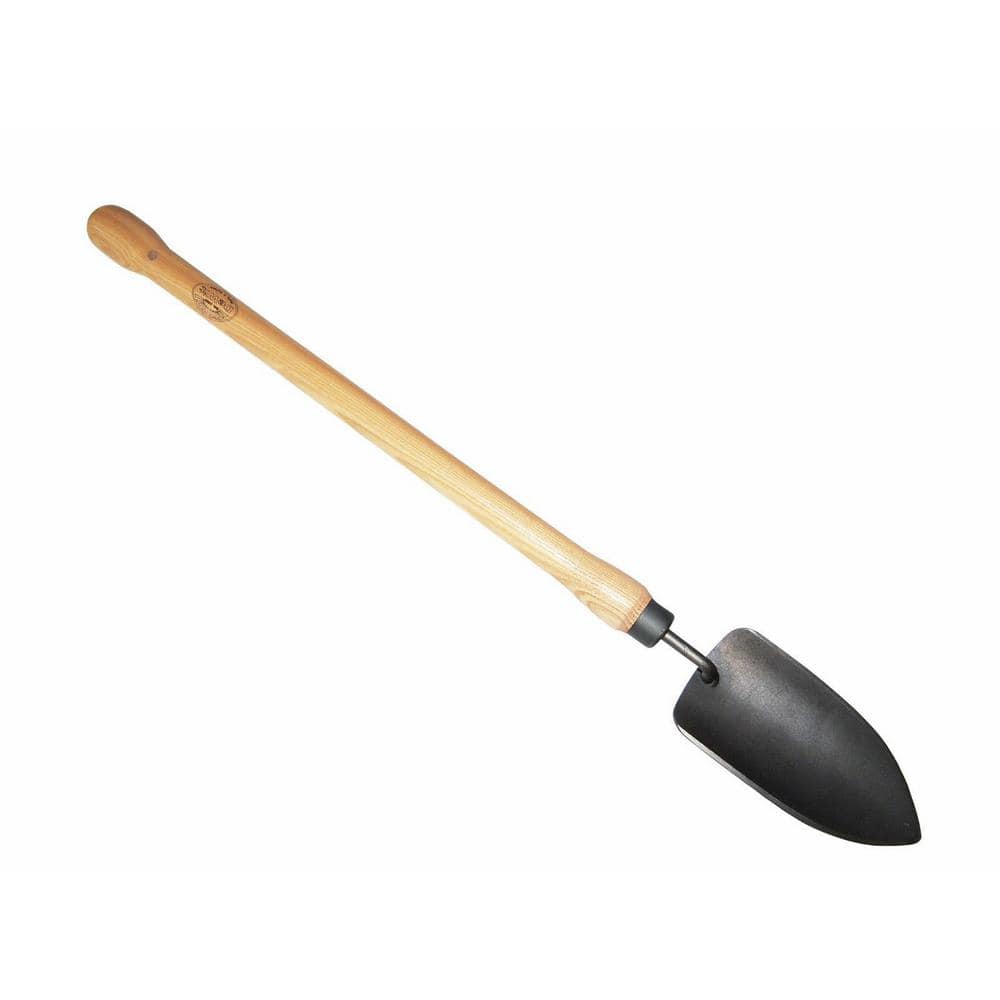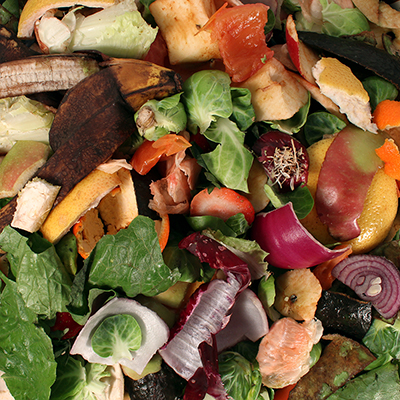How to Test Soil pH

Last updated September 7, 2023
No amount of care will make your lawn and garden healthy and abundant if you have poor soil. The key to a healthy foundation for your landscape is understanding the make-up of your soil from the ground up.
Basic do-it-yourself soil test kits are an inexpensive and easy way to determine if your soil is missing vital nutrients. Or, for a small fee, your local Cooperative Extension Service will test your soil for you. Either way, you’ll learn which soil amendments you'll need for your lawn, vegetables and flowers.
Table of Contents
How to Test Your Soil
How to Take a Soil Sample
What is Soil pH?
How to Test Your Soil

First, take a minute to appreciate garden soil. It is not dirt, which is what you sweep off your floor. Garden soil is made up of minerals, organic matter, air and water in a matrix that provides the ideal conditions for plant roots to provide fuel for plants to grow and thrive.
You can test your own soil using a basic soil test kit from The Home Depot. Inexpensive, easy and accurate, soil tests provide a wealth of knowledge about what’s going on under your feet, including the levels of pH, calcium, lime, gypsum and potassium. For a fee, your local County Extension Service will test your soil as well.
How to Take a Soil Sample

Gather 3 to 5 samples from different parts of your lawn, each from 4 to 6 inches below the surface.
Remove any grass, thatch or debris from your samples.
Thoroughly mix your samples to ensure you have enough soil to test, as required in the kit.
Spread over newspaper and allow soil to dry out, at least 24 hours.
Follow the instructions listed on your soil test kit or send a dry sample to your local Extension office.
The test lets you know about deficiencies needing correcting and how much the pH level needs adjusting. Extension service analysis will make recommendations for soil amendments to improve your soil.
What is Soil pH?

The pH scale shows a range of numbers from 0 to 14 that show how acidic or alkaline something is. On the pH scale, 7 is neutral, and anything below is acidic. Above 7 is alkaline.
When gardeners mention pH, they’re really talking about nutrient availability in the soil. Most plants will thrive in a pH range from 6.0 to 7.5, and that happens to be the pH of most commercial garden soils.
Of course, there are exceptions, like acid-loving blueberry bushes that prefer a pH around 5.5. Acidic soil can be amended with garden lime to make it more neutral or alkaline, while garden sulfur is added to alkaline soils to decrease the pH. Compost is neutral and will not affect the acidity of soil when added.
Once you’ve figured out how to test soil pH, you can find out what the makeup of your soil is. The results of the soil pH test will tell you if you’re working with soil that is more acidic or more alkaline. You can adjust the pH levels by amending your soil.
Whether you need a soil test kit or soil amendments, The Home Depot delivers online orders when and where you need them.





























